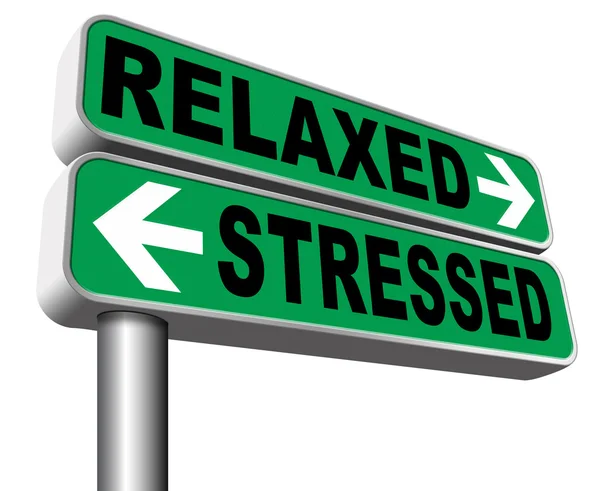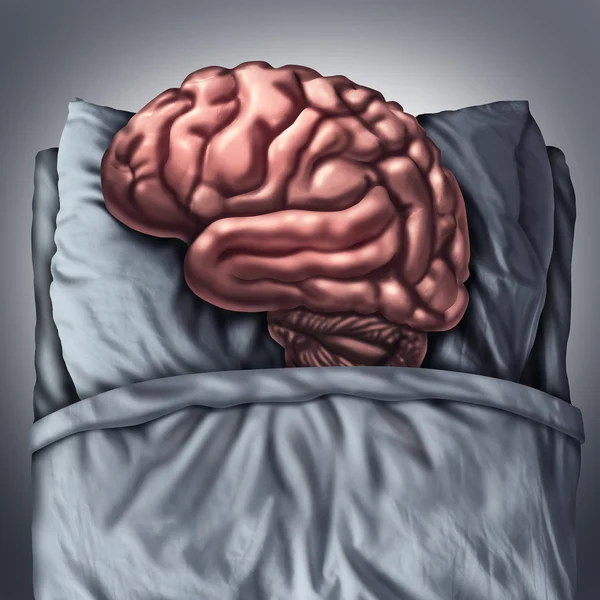
The Connection Between Mental Health and Physical Fitness
Are you feeling stressed out, anxious, or just a bit down lately? If so, you're not alone. According to the National Institute of Mental Health, nearly one in five adults in the United States experiences some form of mental illness in any given year. While there are many factors that can contribute to poor mental health, one that is often overlooked is physical fitness.
Yes, you read that right - your fitness level can have a significant impact on your mental health. It may seem strange that something as simple as going for a run or lifting weights could help alleviate symptoms of anxiety or depression, but the science is clear: there is a strong connection between mental health and physical fitness.
Now, I know what you're thinking - "I hate exercise! How could doing something I hate possibly make me feel better?" Believe me, I get it. As someone who has never been particularly athletic, the thought of hitting the gym or going for a run has always been a bit intimidating. But the good news is, you don't have to become a fitness fanatic to reap the mental health benefits of physical activity. Even moderate exercise, such as a brisk walk or yoga class, can make a big difference.
In this blog post, we'll explore the connection between mental health and physical fitness in more detail. We'll discuss the various ways in which exercise can benefit your mental well-being, from reducing stress and anxiety to improving cognitive function and providing social benefits. So, put on your running shoes (or your comfiest sweats, if that's more your style), and let's dive in!
What is Mental Health?

Let's start by answering a basic question: what exactly is mental health? The World Health Organization defines mental health as "a state of well-being in which an individual realizes his or her own abilities, can cope with the normal stresses of life, can work productively, and is able to make a contribution to his or her community." In other words, mental health is not just the absence of mental illness, but a positive state of being in which one is able to function well in various areas of life.
Mental health encompasses a wide range of aspects of our well-being, including emotional, psychological, and social factors. It involves our ability to manage our emotions and cope with stress, our self-esteem and confidence, and our ability to form and maintain healthy relationships with others. Some examples of mental health conditions include depression, anxiety, bipolar disorder, and schizophrenia.
One of the key aspects of mental health is resilience - the ability to bounce back from challenges and setbacks. This doesn't mean that people with good mental health never experience difficulties, but rather that they are able to navigate these challenges in a way that doesn't significantly impair their well-being or ability to function. A strong support network, coping skills, and a positive outlook on life are all important factors in building resilience.
Maintaining good mental health is not always easy, and there are many factors that can contribute to poor mental health, including genetics, trauma, and environmental factors such as stress and social isolation. However, there are also many things we can do to promote and maintain good mental health, such as staying physically active, practicing mindfulness and relaxation techniques, and seeking support from friends, family, or mental health professionals when needed.
In the next section, we'll explore the concept of physical fitness, and how it is closely connected to mental health.
What is Physical Fitness?

When we talk about physical fitness, many people immediately think of six-pack abs, toned biceps, and running marathons. However, physical fitness is not just about looking good or achieving impressive athletic feats - it's about overall health and well-being.
The Centers for Disease Control and Prevention (CDC) define physical fitness as "the ability to carry out daily tasks with vigor and alertness, without undue fatigue, and with ample energy to enjoy leisure-time pursuits and respond to emergencies." In other words, physical fitness is not just about being able to run a mile or lift a heavy weight - it's about having the energy and stamina to live your life to the fullest.
Physical fitness is composed of various components, including cardiorespiratory endurance, muscular strength and endurance, flexibility, and body composition. Cardiorespiratory endurance refers to the ability of your heart and lungs to supply oxygen to your muscles during physical activity, while muscular strength and endurance are essential for tasks such as lifting and carrying objects. Flexibility is important for maintaining good posture and preventing injury, while body composition refers to the proportion of muscle, fat, and other tissues in your body.
While physical fitness is often associated with structured exercise such as going to the gym or attending fitness classes, it can also be achieved through everyday activities such as walking, gardening, or doing household chores. The important thing is to find physical activities that you enjoy and can incorporate into your daily routine.
In the next section, we'll explore how physical fitness and mental health are closely connected, and how exercise can have a profound impact on our mental well-being.
The Connection Between Mental Health and Physical Fitness

The connection between mental health and physical fitness is often overlooked, but the two are deeply intertwined. While we tend to think of mental health and physical fitness as separate aspects of our well-being, the truth is that they are closely connected - and taking care of one can have a profound impact on the other.
Studies have shown that regular exercise can have a significant positive impact on mental health. Exercise releases endorphins - the body's natural feel-good chemicals - which can improve mood and reduce feelings of stress and anxiety. Exercise has also been shown to improve cognitive function, memory, and overall brain health.
In addition to the immediate benefits of exercise, regular physical activity can also have long-term effects on mental health. Exercise has been linked to a reduced risk of depression and anxiety, and can even be an effective treatment for these conditions in some cases. Exercise can also help to build resilience, improving our ability to cope with stress and adversity.
On the flip side, poor mental health can have a negative impact on physical fitness. Depression, anxiety, and other mental health conditions can make it difficult to find the motivation and energy to exercise, leading to a more sedentary lifestyle and a higher risk of chronic health conditions such as heart disease and obesity.
It's also worth noting that the connection between mental health and physical fitness is a two-way street - taking care of our physical health can have a positive impact on our mental well-being, but taking care of our mental health can also improve our physical fitness. By reducing stress, improving sleep, and boosting motivation, good mental health can make it easier to stick to an exercise routine and achieve our fitness goals.
Overall, the connection between mental health and physical fitness highlights the importance of taking a holistic approach to our health and well-being. By prioritizing both our mental and physical health, we can improve our quality of life and reduce the risk of a wide range of health conditions.
Exercise and Endorphins

We've all heard the phrase "runner's high," but what exactly is it, and why does it happen? The answer lies in endorphins - the body's natural feel-good chemicals - and their close connection to exercise.
Endorphins are chemicals that are produced by the body in response to certain stimuli, such as pain, stress, or physical activity. Exercise is one of the most effective ways to stimulate the production of endorphins, which can have a profound impact on our mood and well-being.
When we exercise, endorphins are released into the bloodstream and travel to the brain, where they bind to receptors and trigger feelings of pleasure and euphoria. This is what's commonly known as "runner's high," but it can also occur during other types of exercise, such as weightlifting, cycling, or swimming.
In addition to boosting mood, endorphins can also help to reduce feelings of stress and anxiety. This is because endorphins act as natural painkillers, helping to block the transmission of pain signals and reduce the body's stress response. This is why exercise is often recommended as a way to relieve stress and improve mental health.
While the endorphin rush that comes with exercise is certainly a powerful motivator, it's important to note that it's not the only benefit of physical activity. Exercise also has a wide range of other physical and mental health benefits, from improving cardiovascular health to reducing the risk of chronic diseases such as diabetes and cancer.
It's also worth noting that the amount of endorphins produced during exercise can vary depending on a number of factors, including the type and intensity of the exercise, the duration of the activity, and the individual's unique physiology. So while "runner's high" may not happen every time you hit the gym, the benefits of exercise on your physical and mental health are still well worth the effort.
In the next section, we'll explore some of the specific mental health benefits of exercise, and how you can incorporate physical activity into your daily routine to improve your overall well-being.
Stress Reduction

Stress is a common and unavoidable part of modern life, and while a certain amount of stress can be beneficial, chronic stress can have a serious impact on our physical and mental health. Luckily, there are a number of strategies we can use to reduce stress and improve our overall well-being - and exercise is one of the most effective.
Regular exercise has been shown to have a powerful effect on reducing stress levels. When we exercise, the body releases endorphins - the natural "feel-good" chemicals that can help to reduce feelings of stress and anxiety. Exercise also increases blood flow to the brain, improving cognitive function and reducing the negative effects of stress on the brain.
In addition to the immediate benefits of exercise, such as reduced tension and improved mood, regular physical activity can also have long-term effects on stress levels. Exercise can help to build resilience, making us better able to cope with stress and adversity. Exercise can also improve sleep quality, which can in turn reduce stress levels and improve overall well-being.
One of the great things about exercise as a stress-reduction tool is that there are so many different types of physical activity to choose from. Whether you prefer high-intensity workouts, calming yoga classes, or long walks in nature, there's a form of exercise out there that can help to reduce stress and improve your overall well-being.
Of course, it's worth noting that exercise is just one of many strategies we can use to reduce stress. Mindfulness meditation, deep breathing, and spending time in nature are all proven stress-reduction techniques that can be used in conjunction with regular exercise to improve mental and physical health.
By prioritizing physical activity and stress reduction in our daily lives, we can reduce the negative effects of chronic stress and improve our overall well-being. So next time you're feeling overwhelmed or anxious, consider hitting the gym or going for a walk - your body and mind will thank you for it!
Cognitive Benefits

When we think about the benefits of exercise, we often focus on the physical benefits such as improved cardiovascular health, increased muscle strength, and weight loss. However, exercise also has a wide range of cognitive benefits that can have a profound impact on our mental health and well-being.
Regular exercise has been shown to have a positive impact on cognitive function and brain health. Exercise increases blood flow to the brain, delivering oxygen and nutrients that can help to improve cognitive function, memory, and attention. Exercise also stimulates the growth of new neurons in the brain, which can help to improve brain function and reduce the risk of cognitive decline as we age.
Research has shown that exercise can improve a wide range of cognitive functions, including executive function, working memory, and attention. This means that exercise can help us to think more clearly, stay focused, and make better decisions.
Exercise has also been shown to have a positive impact on mental health conditions such as depression, anxiety, and ADHD. Exercise can help to reduce symptoms of these conditions and improve overall well-being.
Another important cognitive benefit of exercise is its ability to reduce the risk of dementia and cognitive decline. Regular exercise has been shown to improve cognitive function in older adults and reduce the risk of cognitive decline and dementia.
So if you want to improve your cognitive function and mental health, adding regular exercise to your routine is a great place to start. Whether you prefer to hit the gym, go for a run, or take a yoga class, there's a form of exercise out there that can help you to reap the cognitive benefits of physical activity. So next time you're looking for a mental boost, consider lacing up your running shoes or grabbing your yoga mat - your brain will thank you for it!
Social Benefits

We all know that exercise is great for our physical and mental health, but did you know that it can also have a positive impact on our social lives? That's right - regular exercise can help us to connect with others and build meaningful relationships, making it a powerful tool for improving our overall well-being.
One of the key social benefits of exercise is the opportunity to meet new people and make new friends. Whether you join a gym, take a fitness class, or participate in a recreational sports league, exercise provides a great opportunity to connect with others who share your interests and values. Research has shown that people who exercise regularly are more likely to report having a strong social support network, which can help to reduce stress and improve overall well-being.
Exercise can also help to improve the quality of existing relationships. Participating in physical activity with a partner, friend, or family member can provide a great bonding experience, and can help to strengthen the emotional connection between individuals. In fact, research has shown that couples who exercise together report feeling more satisfied with their relationship and more connected to their partner.
Exercise can also be a great way to give back to your community and make a positive impact on the world. Participating in a charity walk or run, volunteering at a local community garden or park, or coaching a youth sports team are all examples of how exercise can be used to benefit others and strengthen social connections.
So if you're looking to improve your social life and build meaningful relationships, regular exercise is a great place to start. Whether you prefer to exercise alone or with others, there are countless opportunities to connect with like-minded individuals and build a strong social support network. So next time you're looking for a workout buddy or a way to give back to your community, consider incorporating exercise into your routine - your body, mind, and social life will thank you for it!
Challenges to Maintaining Physical Fitness
for Mental Health

While the benefits of exercise for mental health are clear, it can be challenging to maintain a regular exercise routine, especially when dealing with mental health conditions such as depression, anxiety, or chronic stress. Here are some of the most common challenges to maintaining physical fitness for mental health, and some tips on how to overcome them.
Lack of motivation: It can be hard to find the motivation to exercise, especially when dealing with symptoms of depression or anxiety. One way to overcome this challenge is to start small and set achievable goals. Rather than trying to run a marathon, start by taking a short walk around the block. Celebrate small victories and build on them over time.
Time constraints: Busy schedules can make it difficult to find time to exercise. One way to overcome this challenge is to incorporate physical activity into your daily routine. Take the stairs instead of the elevator, go for a walk during your lunch break, or try a short yoga routine before bed. Even small amounts of physical activity can have a positive impact on mental health.
Financial barriers: Joining a gym or fitness class can be expensive, which can be a barrier to physical fitness for some. However, there are many low-cost or free options available, such as walking or running outside, doing bodyweight exercises at home, or finding free community fitness events.
Injuries or health conditions: Physical injuries or health conditions can make it difficult to maintain a regular exercise routine. However, it's important to work with a healthcare provider to develop a safe and effective exercise plan that takes your individual needs into account. There are many forms of exercise that can be adapted to accommodate different health conditions.
Self-doubt: Negative self-talk and self-doubt can be a barrier to physical fitness for mental health. It's important to practice self-compassion and focus on the positive aspects of exercise, such as the mood-boosting effects and the opportunity to connect with others.
By acknowledging these challenges and taking steps to overcome them, it's possible to maintain a regular exercise routine and reap the mental health benefits of physical activity. Whether you prefer to exercise alone or with others, indoors or outdoors, there's a form of exercise out there that can help you to feel your best. So next time you're struggling to find the motivation to exercise, remember that even small amounts of physical activity can have a big impact on your mental health - so lace up your sneakers, grab a friend, and get moving!
Conclusion
In conclusion, the connection between mental health and physical fitness is undeniable. While it may be tempting to focus solely on mental health treatments such as therapy and medication, it's important to remember that physical activity can play a crucial role in improving mental health and well-being.
By engaging in regular physical activity, we can boost our mood, reduce stress and anxiety, and improve our cognitive function. We can also benefit from the social connections and sense of community that often come with participating in physical activity.
Of course, maintaining a regular exercise routine is not always easy. There are many challenges that can make it difficult to stay on track, such as lack of motivation, time constraints, financial barriers, and health conditions. However, by taking small steps to overcome these challenges, we can create a sustainable exercise routine that supports our mental health.
So, whether you prefer to hit the gym, take a yoga class, or simply go for a walk outside, it's important to prioritize physical activity as a key component of mental health care. By taking care of our bodies, we can take care of our minds and ultimately live happier, healthier lives.
 Reviewed by jadan
on
February 21, 2023
Rating:
Reviewed by jadan
on
February 21, 2023
Rating:




No comments: